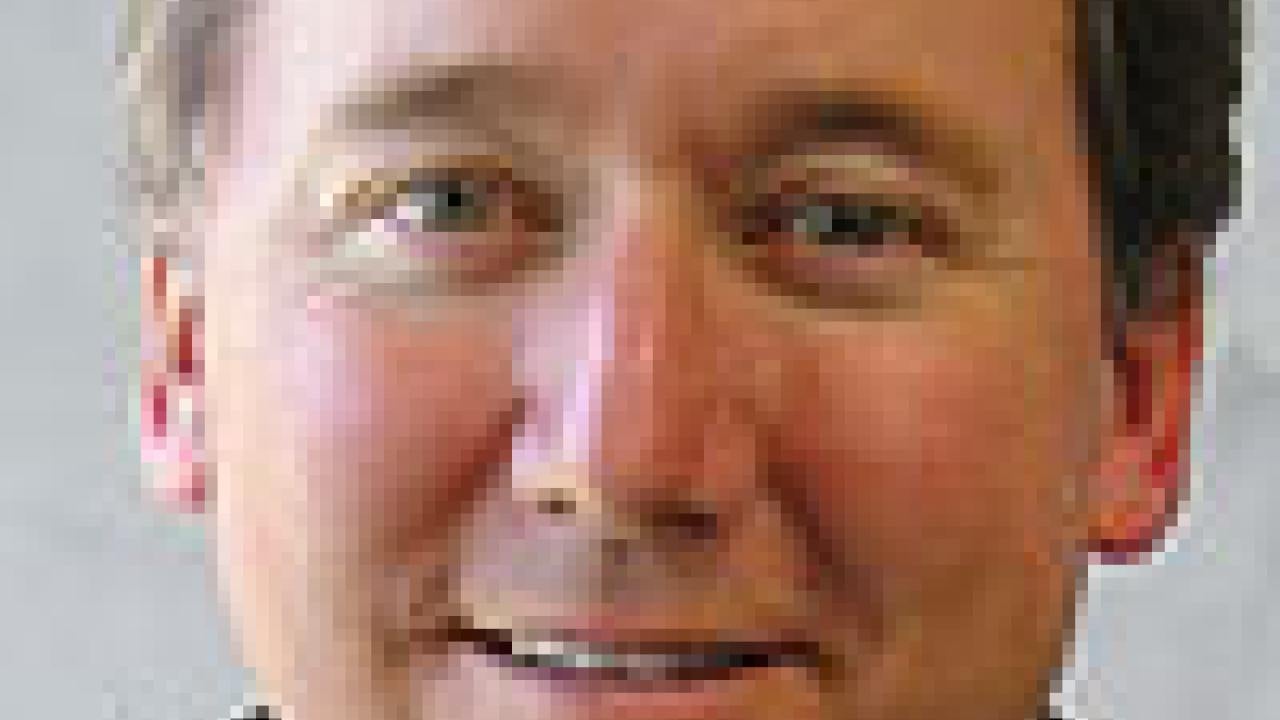UC Davis microbiologist David Mills has been awarded a $100,000 challenge grant from the Bill and Melinda Gates Foundation to test whether certain complex sugars in milk can be used to prevent life-threatening diarrheal diseases in young children.
Globally, these gastrointestinal infections are the second leading cause of death among children under the age of five, each year killing 1.5 million children, according to the World Health Organization.
“The grant equips us to work with the California dairy industry to obtain and evaluate milk oligosaccharides that are found in whey, a byproduct of cheese processing,” said Mills, an authority on the molecular biology of lactic acid bacteria used in foods. “We will examine the ability of these compounds from milk to prevent gastrointestinal infections and to establish healthy bacteria in the intestines.
For several years, Mills and colleagues have been researching the basic scientific principles of this study. They are now working with UC Davis’ Foods for Health Institute to move the basic research toward practical applications in human health.
The award is one of 78 grants made internationally by the Gates Foundation in the fourth round of its international Grand Challenges Explorations program, a five-year, $100-million effort to promote innovation and major research breakthroughs that will benefit global health.
“This grant highlights what California agriculture and the University of California can achieve together,” said Neal Van Alfen, dean of UC Davis’ College of Agricultural and Environmental Sciences. “In partnership with the dairy industry, we hope to unlock the hidden potential of milk to protect the health of young children, and other at-risk populations, around the globe.”
Earlier research has shown that similar oligosaccharides in human breast milk play an important role in supporting growth of protective bacteria in babies’ digestive tracts. Such bacteria are known to minimize the risk and severity of diarrheal disease and other gastrointestinal infections in infants.
The UC Davis researchers are hopeful that milk from cows will provide an abundant source of oligosaccharides that have comparable therapeutic characteristics for young children who are no longer breast-feeding.
With the Gates Foundation grant, Mills and UC Davis food scientists Bruce German and Glenn Young will work with the California dairy industry to obtain purified oligosaccharides from milk.
The research team will conduct a three-pronged study, examining to what extent oligosaccharides from cow milk influence growth of various intestinal microbes, promote colonization of healthful intestinal bacteria, and prevent Salmonella infection in laboratory mice.
Mills noted that if the researchers’ hypothesis proves correct, they plan to then explore how oligosaccharides can be incorporated in a healthful, cost-effective manner into various food products designed for nutritional therapy and for use in international famine and malnutrition relief efforts.
(More information on this and related research is available from UC Davis’ Functional Glycobiology Program at http://fgp.ucdavis.edu/.)
"This highly selective Gates award demonstrates the potential of UC Davis research to strengthen the role that dairy products play in delivering health and nutrition to the global population," said Joe O'Donnell, executive director of the California Dairy Research Foundation. "These studies will prepare dairy food developers to focus on a great variety of products based on cow milk, which naturally contains these health-promoting oligosaccharides."
The Gates Foundation’s Grand Challenges Explorations is designed to promote innovation in global health. The program uses an agile, streamlined grant process. Proposals are reviewed and selected by a committee of foundation staff and external experts, and grant decisions are made within approximately three months of the close of the funding round. Initial grants of $100,000 are awarded two times a year. Successful projects have the opportunity to receive a follow-on grant of $1 million or more.
"The winners of these grants show the bold thinking we need to tackle some of the world's greatest health challenges," said Dr. Tachi Yamada, president of the Gates Foundation's Global Health Program. "I'm excited about their ideas and look forward to seeing some of these exploratory projects turn into life-saving breakthroughs."
About UC Davis
For more than 100 years, UC Davis has engaged in teaching, research and public service that matter to California and transform the world. Located close to the state capital, UC Davis has 32,000 students, an annual research budget that exceeds $600 million, a comprehensive health system and 13 specialized research centers. The university offers interdisciplinary graduate study and more than 100 undergraduate majors in four colleges — Agricultural and Environmental Sciences, Biological Sciences, Engineering, and Letters and Science. It also houses six professional schools — Education, Law, Management, Medicine, Veterinary Medicine and the Betty Irene Moore School of Nursing.
Media Resources
Pat Bailey, Research news (emphasis: agricultural and nutritional sciences, and veterinary medicine), 530-219-9640, pjbailey@ucdavis.edu
David Mills, Viticulture and Enology, 530-754-7821, damills@ucdavis.edu
